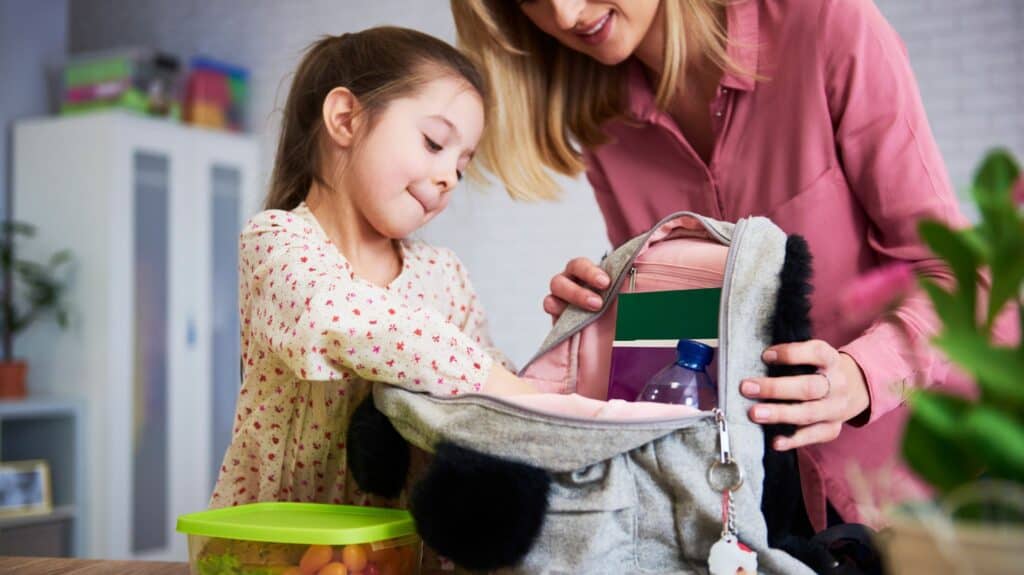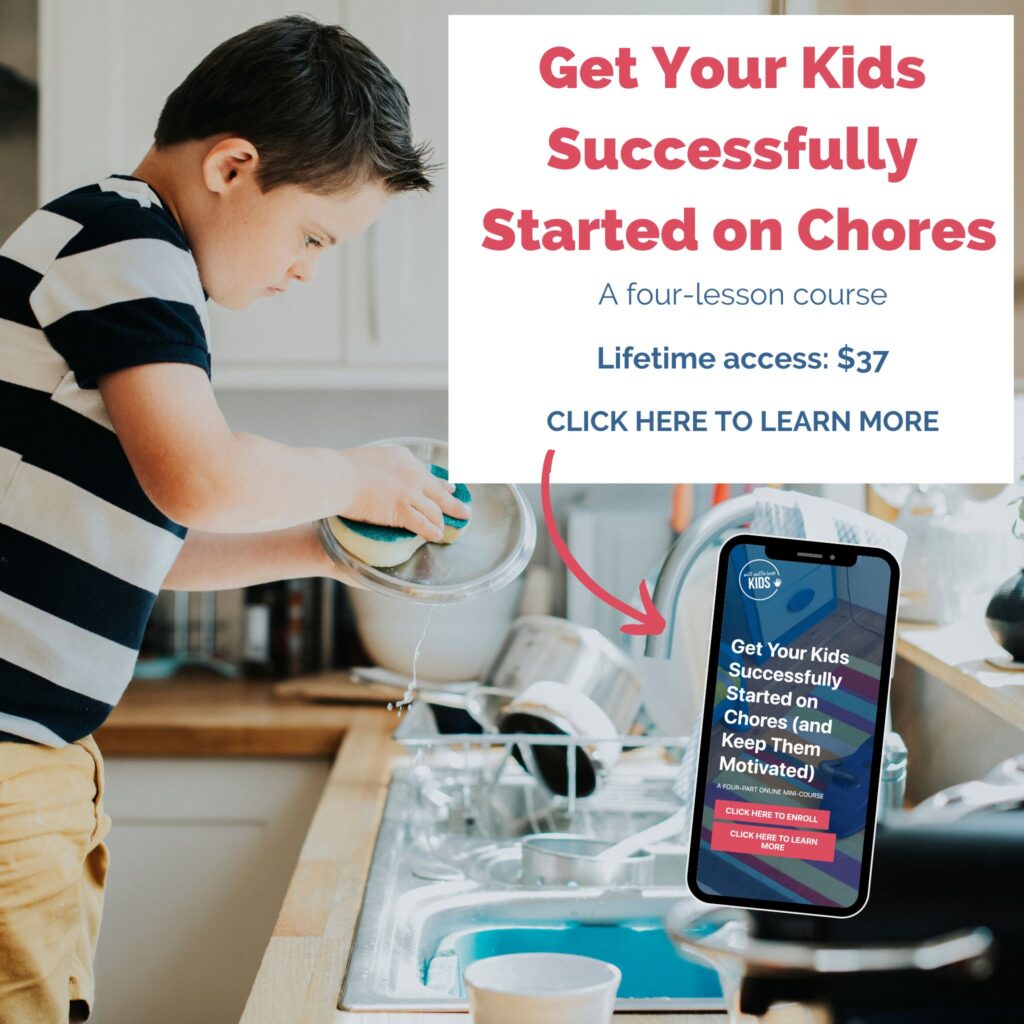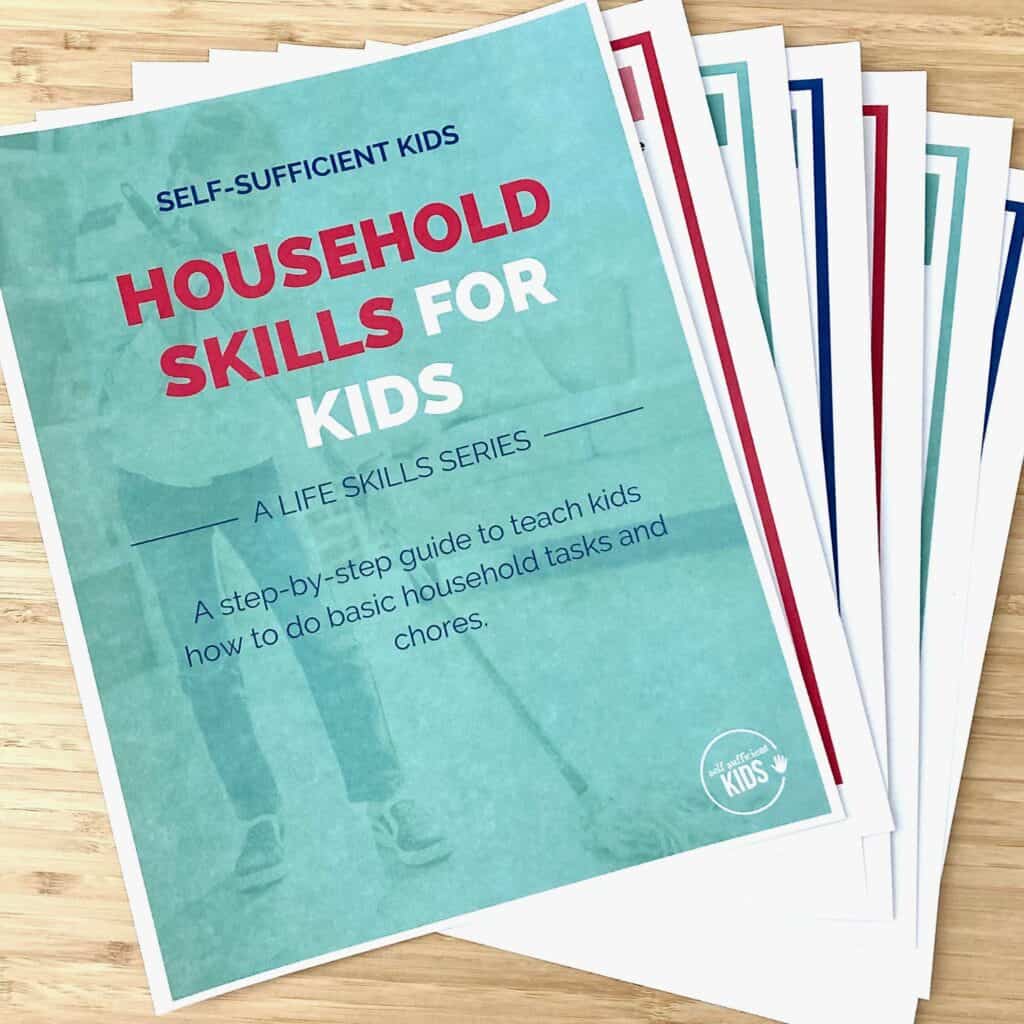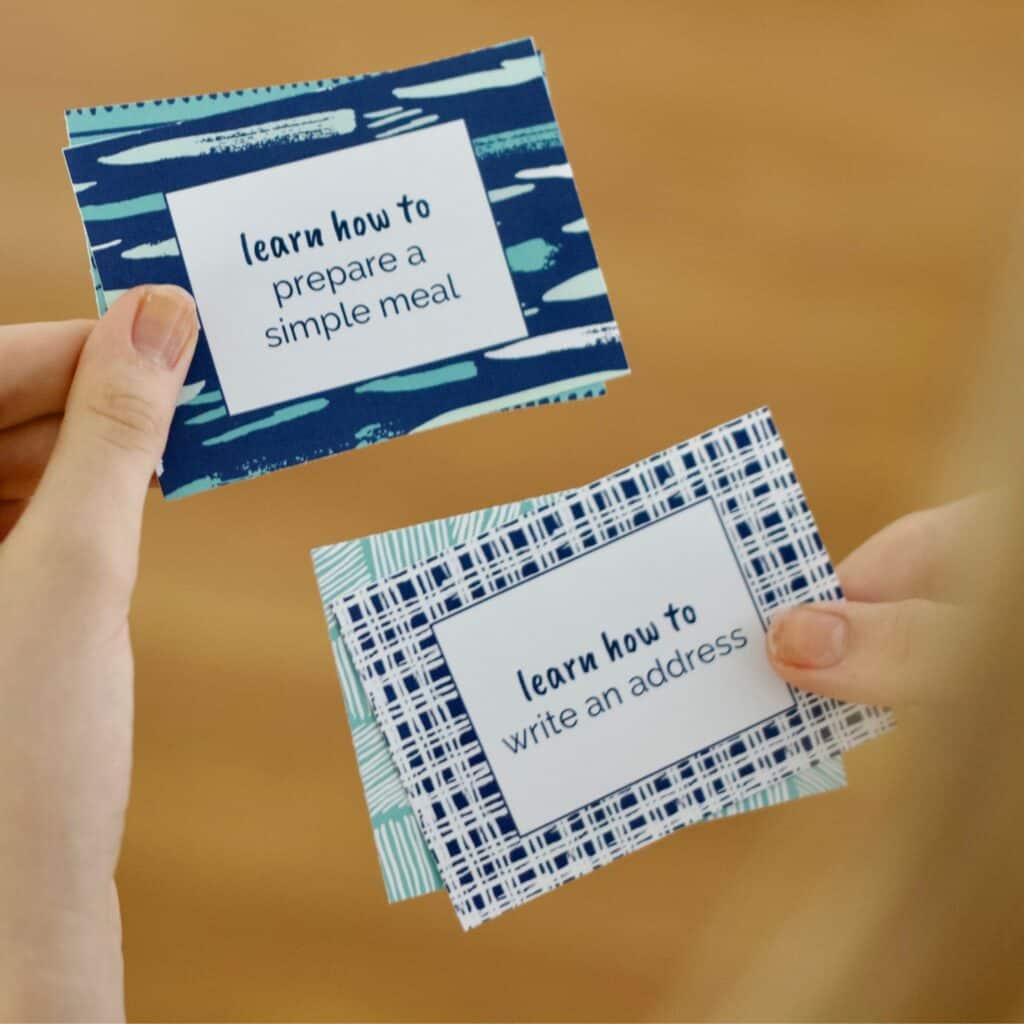6 Tips for Teaching Responsibility to Children: a Step-by-Step Guide
Most kids aren’t naturally responsible and need to be taught. Here are six tips for teaching responsibility to kids.

If you’re like most parents you’ve probably dreamed of a world where your kids are more responsible:
- They pick up their toys without reminders
- Consistently place their laundry in the hamper instead of the floor
- Brush their hair (for once!) without being told
Life with responsible kids would be an ease. It would mean less work for you or the need to constantly bark out orders.
The truth is, however, that few kids are naturally responsible. Most kids need instruction.
And unfortunately, in many families, attempts at teaching responsibility result in nagging, defiance, and power struggles.
Teaching your child to be responsible doesn’t have to be a constant struggle that adds negativity to your relationship.
Having the right mindset about what to reasonably expect from your child, setting them up for success, and effectively coaching them on appropriate behavior will help lead them towards greater incremental responsibility.
Developmental readiness and responsibility
But before you take on the task of teaching responsibility, it’s important to be realistic about what you can expect from your child.
Just like we wouldn’t expect an infant to begin reading, we can’t expect our children to do more than they’re developmentally ready to do. This is true with responsibility, and often parents mistakenly assume that their child is capable of taking on a level of responsibility they’re simply not ready for.
Here’s what you can expect from your child at different ages and stages:
Infants: As silly as it may seem, babies can start to learn responsibility! They learn through what is modeled for them, such how well their needs are being taken care of by adults. Once babies can grasp objects and walk, they can help put away toys or tidy their room but only with an adult cleaning alongside them, modeling what needs to be done.
Toddlers: Toddlers are eager helpers and getting them involved in chores will encourage greater willingness to help. Toddlers still need to work alongside an adult who models what needs to be done. Don’t expect any task to be done well at this stage. The goal is simply to encourage a helping mindset regardless of the outcome. Also recognize that toddlers have a short attention span and may naturally lose interest. The idea at this stage is simply to encourage participation.
Preschoolers: Preschoolers still need the help of their parents to model appropriate responsibility. They’re not developmentally ready to independently brush their teeth or put their dirty clothes in a hamper, for example. They can, however, begin to dress themselves. And having preschoolers do chores helps them feel like contributors to the family and boosts their self-esteem. This still isn’t the age when you can expect chores to be done well.
Elementary schoolers: Between the ages of six and twelve, kids can be expected to take on greater responsibility, but they’ll still need a lot of guidance and positive support from you. Tools like routines, checklists, and timers can help aid kids’ independence. And it’s especially helpful to have a family meeting where everyone decides which chores will be completed, at what time, and the expectations around completing them. The developmental trajectory for demonstrating responsibility is long. While more can be expected of elementary schoolers, they’ll still make mistakes and require patience as they continue to learn.
Tweens/teens: This is the age when more responsibility can be expected, especially with schoolwork and homework. But it’s helpful to keep in mind that even though tweens and teens can take on greater responsibility, it doesn’t always come easy for them. Mistakes are bound to happen as tweens and teens continue learning. Instead of criticizing their mess-ups, teens will appreciate your support as you help them with problem-solving and thinking through ways they can do better in the future.
Interested in getting your kids started on chores? My four-lesson course will teach you how to get started, avoid nagging & power struggles, and keep your kids motivated. Click here or the image below to learn more.

6 Tips for teaching kids responsibility
Now that you have a clear understanding of what your child(ren) are developmentally capable of accomplishing, the following tips will help you support your child’s growth in responsibility:
Model responsibility
This may be obvious, but we can’t expect our children to be responsible if we’re not modeling responsibility. If we’re consistently showing up late to events, for example, or fail to tidy our own bedroom we can’t expect more from our kids.
Kids learn more from what we model than what we say or teach them. So modeling responsibility is the first step in teaching.
Expect responsibility
It’s also necessary to expect our kids to be responsible in an age-appropriate way. This doesn’t mean we demand it, but rather, that we have an expectation that our children are capable. The opposite would be cleaning up our toddler’s toys for them without their help, organizing and tidying our elementary school child’s bedroom, or constantly doing for our teen what they’re capable of doing for themself.
Let go of perfection
Often parents miss the chance to encourage responsibility in their child by focusing too much on outcomes – whether the floor was perfectly swept to our standards or dishes from the dishwasher put away in exactly the right place. We can coach our child in completing a task well but criticism and condemnation will only discourage motivation to help in the future.
Work together
As mentioned previously, in the early years, your child will need you to work alongside them as they take on chores and other tasks. As they get older, work with your child to determine which chores they should do and when and how they should do them. Never dictate to your child what needs to be done, instead, hold a family meeting or have a one-on-one conversation. Encouraging responsibility is as much about internal motivation and self-discipline as it is completing tasks.
Support and coach
Once you and your child has determined what they will do and when, it’s important to set them up for success by teaching them how to do a task well. It’s unrealistic to assume your child naturally knows what’s needed to achieve a clean bedroom, manage time, or organize belongings. See the section below on steps to teach your child how to do a chore or task well.
Use tools for teaching responsibility
Although our kids will need our continued guidance, the goal is to help them be as independent as possible. Tools like routines, checklists, and timers can help remind kids and teens what they need to do when and in what order.
Kids and teens can use this step-by-step guide to both learn and remember what they need to do to complete common household tasks. Examples include washing dishes, vacuuming, clean a toilet, make a bed and more. Click here to learn more and get your own copy.
Four steps to coaching kids in specific tasks (while keeping the peace)
Kids need us to coach and train them in specific tasks, but how can we do this so without resistance or a fight?
Here are four steps to take when coaching kids that will make them more open to your guidance:
Step #1 – Have your child observe: As you perform the given task, have your child look on. Explain what you’re doing step by step.
Step #2 – Do the task together: The next time the task needs to be done, or in the moment, do it with your child. Or you could do part of the task (such as washing dishes) while your child does the other part. Always ask your child if they’d like your tips or advice. They’ll be more open to listening if asked first.
Step #3 – Supervise while they do the task: When the opportunity arises again, have your child do the task by themselves while you supervise. Be careful at this stage not to point out every mistake – that could discourage your child. Again, ask if they’d like tips or advice and praise when possible.
Step #4 – Let your child do the task independently: When your child feels ready, let them perform the task on their own. Remember that they probably won’t complete it to your standards for a long time. Keep your focus on encouraging a helping mindset. Mastery of a given task will come in time.
Don’t overlook the importance of connection
If you’ve tried all of the advice above and are still having trouble, don’t overlook the importance of connection with your child. When kids feel connected to parents or adults they’re more eager and willing to work with us and do what we ask.
Connection means more than just spending time together. In fact, real connection has less to do with time and more to do with quality.
Connection occurs when we listen to our child’s opinions, thoughts, and fears, accept them for who they are, and take an interest in what interests them. It’s letting them know they matter and that we’re here to help them learn how to function in the world appropriately.
As we connect with our kids, we’re in the best position possible to help coach and guide them. Leading them towards a more fulfilling life and an adulthood of self-sufficiency.
Ready to teach your child life skills? These cards can help! Each card in this eighty-one deck contains a skill your child can begin practicing with you or on their own. Click here or the image below to learn more.
What to do next…
1. Subscribe to Self-Sufficient Kids’ email list.
Like what you read here and want to learn more? Every Thursday I’ll send you one parenting tip about raising self-sufficient kids and creating the peaceful relationship you yearn to have with your child. Click here to sign up.
2. Take one of my quizzes!
Find out if you’re raising a self-sufficient kid (click here) or if you’re doing too much for your kids (click here). At the end of each quiz, you’ll be asked to provide your email address to see the results.
3. Get your kids started on chores.
Learn how to get your child started on chores (& keep them motivated + avoid power struggles) by enrolling in my Get Your Kids Successfully Started on Chores course. Click here to learn more and sign up.

About Kerry Flatley
Hi! I’m Kerry, the mother of two girls and a certified parent educator. I believe it is possible for parents to have a supportive, loving, and warm relationship with their kids while raising them to be independent and ultimately self-sufficient. Over the years, I’ve read numerous books and articles that support this belief and I’ve put these ideas into practice with my own kids. Read more about me and Self-Sufficient Kids here.



